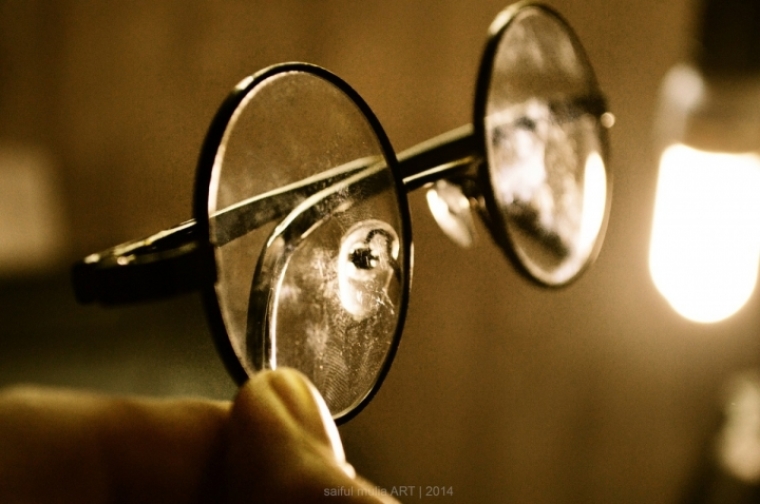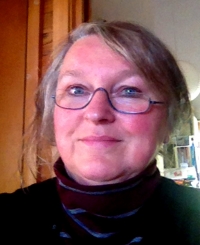
I can't stand dirty spectacles. My reading glasses in particular are very prone to getting blurry and smeary. They are constantly on and off my nose and readily collect fingerprints and general grime, not to mention scratches.
My cat was intrigued by a pair of specs I had left on the desk and had to give them the 'what's this, can I eat it?' test. Alas his teeth are sharp and there's now a very fine scratch across one plastic lens. Dirty and scratched lenses can be a distraction from clear vision.
But it's not only blurry specs that impair vision.
From my observation, it would seem to be the same when one's cataracts need replacing. Nowadays a relatively simple procedure removes the cloudy lens from the eye and replaces it with a shiny, new (and clear) synthetic lens. The procedure is so inexpensive and quick that is it available to hundreds of people and not just in Australia. In third world countries there are programs where eye surgeons volunteer their services to help.
In such communities, being blind can be a serious disadvantage, even a death sentence. Being vision-impaired reduces your ability to work and contribute to your family and community.
You wonder that anyone would refuse such transforming treatment. Yet it happens. Some people have had major, complex surgeries but they are squeamish about cataract surgery: 'No! No! Not my eyes!'
I know someone who can only read large print by moving the page and his head to find that 'sweet spot' where the lens is a little less cloudy. Cataract surgery terrifies this war-seasoned ex-soldier. There's a risk that his vision might be worse – he'd rather see a blur than take that small risk.
Through a glass
Recently I was cleaning my glasses in church while listening to a reading from 1 Corinthians 13. Not the famous bit about Love, but the last couple of verses.
For now we see through a glass, darkly; but then face to face: now I know in part; but then shall I know even as also I am known. 1 Corinthians chapter 13 verse 12
As I polished my specs with their special blue cloth I got to thinking. So much of what we see today is a reflection of the real thing: 'through a glass, darkly.' Not just through our spectacles but also through our various glass screens. No matter how hard we peer and squint and try to see the whole picture, so much looks unclear and blurred.
It is hard to move the page and tilt the head to find that small angle of vision.
What's happening really? How can we see the big picture? Where is the world going?
The whole Middle East, the UK and Brexit, the US Presidential election. There are drug smugglers and internet scams. Glaciers and permafrost are melting, weather and the oceans are changing; there are natural disasters, organised crime. Relationships can be messy. International politics are fiendishly complex.
It can sometimes be hard to see the way ahead. Our lenses are blurred, unclear – 'through a glass, darkly'.
Face to face
I guess the best we can do is to keep our 'glasses' as clean as we can; make sure we are not looking at things through a film of dust and grime, prejudice and ignorance. We won't have perfect vision in this life, but we can try to see as clearly as we can until we are 'face to face' and the darkness of the glass is cleared away forever and our vision is perfectly clear. We will see not a reflection, but the real thing.
A lovely poem by Alfred Lord Tennyson set to music by CHH Parry echoes the verses in 1 Corinthians 12.
For tho' from out our bourne of Time and Place
The flood may bear me far,
I hope to see my Pilot face to face
When I have crost the bar.
Crossing the Bar by Alfred Lord Tennyson

Sheelagh Wegman, BA, IPEd Accredited Editor is production editor for the Tasmanian Anglican magazine and does a broad range of editing for self-publishing authors. She sings in the choir of St David's Cathedral in Hobart and lives in bushland on the foothills of Mt Wellington.
Sheelagh Wegman's previous articles may be viewed at http://www.pressserviceinternational.org/sheelagh-wegman.html